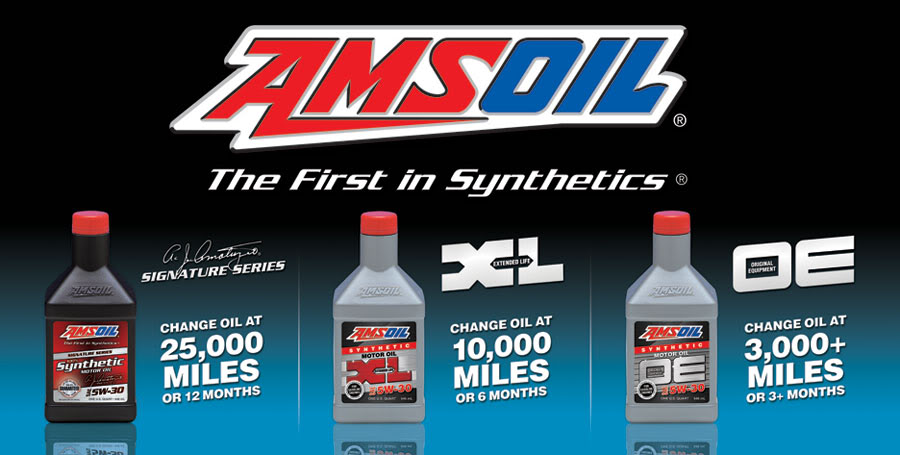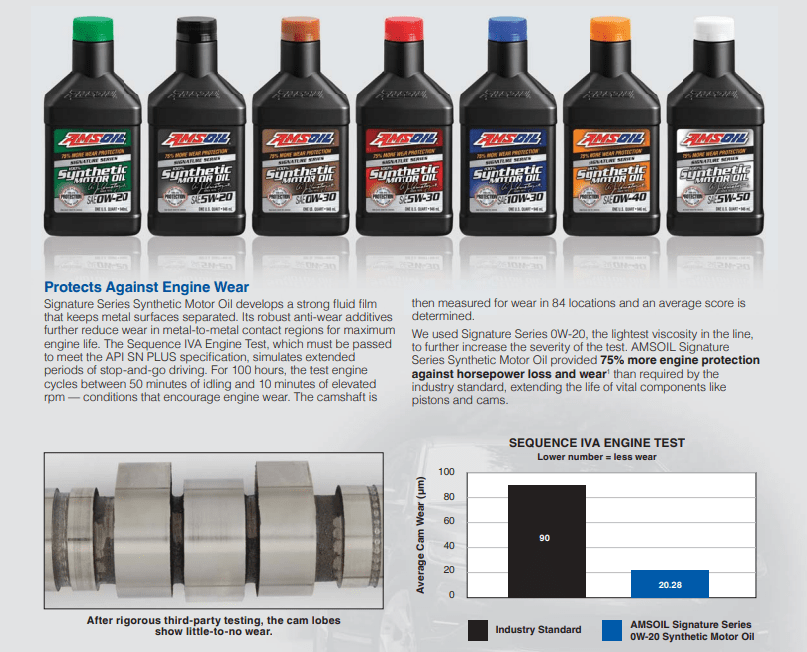How Often Should You Change Synthetic Oil?

When it comes to maintaining your vehicle, one of the most important tasks is changing the oil regularly. But how often should you change synthetic oil? With advancements in technology, synthetic oil has become a popular choice for many drivers. Its ability to resist breakdown and provide better lubrication makes it an attractive option. However, the recommended oil change interval can vary depending on several factors.
In this article, we will explore the ideal frequency for changing synthetic oil and the factors that influence it. We’ll delve into important considerations such as driving habits, vehicle age, and environmental conditions. By understanding these factors, you can confidently make informed decisions about maintaining your engine’s health and performance.
So, whether you’re a weekend driver or someone who frequently hits the road, this article will provide you with valuable insights to help you determine how often you should change synthetic oil. Don’t miss out on this essential information that will ensure your vehicle’s longevity and efficiency. Let’s get started!
Benefits of using synthetic oil
Synthetic oil offers numerous benefits over conventional oil. One of the main advantages is its ability to resist breakdown and maintain its viscosity even under extreme temperatures. This means that synthetic oil can provide better protection for your engine, reducing wear and tear and extending its lifespan. Additionally, synthetic oil flows more easily, providing improved lubrication, especially during cold starts.
Another benefit of synthetic oil is its ability to resist sludge and deposit formation. This helps keep your engine clean and prevents harmful build-up that can affect performance. Synthetic oil also has a longer life span compared to conventional oil, which means fewer oil changes and cost savings in the long run.
Overall, using synthetic oil can enhance your engine’s performance, improve fuel efficiency, and protect critical engine components. Now, let’s discuss the factors that determine how often you should change synthetic oil.
Understanding oil change intervals
Oil change intervals refer to the recommended time or mileage at which you should replace your vehicle’s oil. These intervals can vary depending on the type of oil you use, driving conditions, and the manufacturer’s recommendations. Traditionally, the standard oil change interval for conventional oil has been around 3,000 miles or every three months, whichever comes first. However, synthetic oil offers extended oil change intervals due to its superior properties.
It’s important to note that following the manufacturer’s recommendations is crucial. They have conducted extensive testing to determine the optimal oil change intervals for your specific vehicle. Ignoring these
recommendations can lead to engine damage and void any warranties.
Now, let’s explore the factors that can affect how often you should change synthetic oil.
Factors that affect oil change frequency
- Driving Habits: Your driving habits play a significant role in determining how often you should change synthetic oil. If you frequently drive in severe conditions, such as extreme temperatures, heavy traffic, or dusty roads, your oil may degrade faster. Similarly, if you frequently engage in stop-and-go driving or towing heavy loads, your engine may require more frequent oil changes.
- Vehicle Age: The age of your vehicle can also influence oil change frequency. Older vehicles tend to have more internal engine wear and may require more frequent oil changes to maintain optimal performance. On the other hand, newer vehicles with advanced engine technologies and synthetic oil may have longer oil change intervals.
- Environmental Conditions: Extreme temperatures and harsh climates can impact your oil’s performance. In hot climates, synthetic oil may break down faster, necessitating more frequent changes. Similarly, cold weather can affect oil flow and may require more frequent oil changes.
- Oil Type: The type of synthetic oil you use can also impact oil change frequency. Different synthetic oils have different formulations and properties, which can affect their longevity. Always refer to the manufacturer’s recommendations and choose a synthetic oil that meets the specifications for your vehicle.
Now that we understand the factors that affect oil change frequency, let’s discuss the recommended oil change intervals for synthetic oil.
Recommended oil change intervals for synthetic oil
Synthetic oil offers extended oil change intervals compared to conventional oil. While the exact intervals may vary depending on the factors mentioned above, a general guideline is to change synthetic oil every 7,500 to 10,000 miles or every six months, whichever comes first. However, it’s crucial to refer to your vehicle’s owner’s manual or consult with a trusted mechanic to determine the specific intervals for your vehicle.
It’s worth noting that some newer vehicles equipped with advanced engine monitoring systems may have oil life monitors that can accurately determine when it’s time to change your oil. These systems analyze various factors such as engine load, temperature, and driving conditions to provide a more accurate indication of when an oil change is needed. If your vehicle has such a system, it’s essential to follow its recommendations.
Signs that indicate it’s time to change synthetic oil
While following the recommended oil change intervals is crucial, it’s also essential to be aware of signs that indicate it’s time to change your synthetic oil. These signs include:
- Oil Change Reminder: Many vehicles are equipped with oil change reminder systems that illuminate a warning light when it’s time to change the oil. Pay attention to these reminders and schedule an oil change accordingly.
- Dark, Dirty Oil: If you check your oil and notice that it appears dark and dirty, it’s an indication that it’s time for a change. Dirty oil can no longer effectively lubricate your engine and may lead to increased wear and reduced performance.
- Engine Noise: If you notice an increase in engine noise or knocking sounds, it could be a sign that your oil is no longer providing adequate lubrication. In such cases, it’s essential to have your oil changed promptly.
- Decreased Fuel Efficiency: If you notice a significant decrease in your vehicle’s fuel efficiency, it could be due to old or degraded oil. Fresh oil helps reduce friction and improve engine efficiency.
If you experience any of these signs, it’s recommended to schedule an oil change as soon as possible to prevent potential engine damage.
How to properly change synthetic oil
Changing synthetic oil is a relatively straightforward process, but it’s essential to follow the correct steps to ensure a proper oil change. Here’s a step-by-step guide:
- Gather the Necessary Tools: Before you begin, gather the necessary tools, including a wrench, oil filter wrench, oil drain pan, funnel, and new oil and oil filter.
- Prepare the Vehicle: Park your vehicle on a level surface and engage the parking brake. Warm up the engine for a few minutes to allow the oil to flow more easily.
- Locate the Oil Drain Plug: Locate the oil drain plug underneath your vehicle. Place the oil drain pan beneath the drain plug to catch the old oil.
- Drain the Old Oil: Use a wrench to loosen the drain plug and carefully remove it. Allow the old oil to drain completely into the drain pan.
- Replace the Oil Filter: While the old oil is draining, locate and remove the old oil filter. Apply a thin layer of new oil to the rubber gasket on the new oil filter. Install the new oil filter by hand, ensuring it is tightened according to the manufacturer’s specifications.
- Refill with New Oil: Once the old oil has completely drained, reinstall the drain plug and tighten it securely. Use a funnel to pour the recommended amount of new synthetic oil into the engine. Refer to your vehicle’s owner’s manual for the correct oil type and quantity.
- Check the Oil Level: After adding the new oil, wait for a few minutes to allow it to settle. Check the oil level using the dipstick, ensuring it is within the proper range.
- Dispose of Old Oil: Properly dispose of the old oil by taking it to a recycling center or an auto parts store that accepts used oil.
By following these steps and using the recommended synthetic oil, you can ensure a proper oil change and maintain your engine’s health and performance.
Common myths about synthetic oil changes
There are several myths surrounding synthetic oil change intervals. Let’s debunk some of the most common ones:
- Synthetic Oil Lasts Forever: While synthetic oil offers extended oil change intervals, it doesn’t last forever. Over time, oil additives can break down, leading to reduced performance. Regular oil changes are still necessary to maintain optimal engine health.
- Extended Oil Change Intervals Void Warranties: As long as you follow the manufacturer’s recommendations, using synthetic oil and adhering to the specified oil change intervals will not void your vehicle’s warranty. It’s crucial to keep records of all oil changes for warranty purposes.
- Synthetic Oil Doesn’t Need to be Checked: While synthetic oil is more resistant to breakdown, it’s still
important to regularly check the oil level and monitor its condition. This allows you to detect potential issues early and prevent engine damage.
- Synthetic Oil Can’t be Mixed with Conventional Oil: While it’s generally recommended to use the same type of oil throughout an oil change, mixing small amounts of synthetic and conventional oil shouldn’t cause any harm. However, it’s best to consult your vehicle’s owner’s manual or a trusted mechanic for specific recommendations.
Now that we’ve addressed common myths, let’s answer some frequently asked questions about changing synthetic oil.
Frequently asked questions about changing synthetic oil
Q: Is synthetic oil more expensive than conventional oil?
A: Yes, synthetic oil is generally more expensive than conventional oil. However, the extended oil change
intervals and improved engine performance make it a worthwhile investment in the long run.
Q: Can I switch from conventional oil to synthetic oil?
A: Yes, you can switch from conventional oil to synthetic oil at any time. However, it’s recommended to perform a thorough oil change, including replacing the oil filter.
Q: Can I extend oil change intervals further?
A: While synthetic oil offers extended oil change intervals, it’s important to follow the manufacturer’s
recommendations. Extending oil change intervals beyond the recommended limits can lead to engine damage and void warranties.
Q: Can I use synthetic oil in an older vehicle?
A: Yes, synthetic oil can be used in older vehicles. In fact, using synthetic oil can help protect older engines and reduce wear and tear. However, it’s essential to follow the manufacturer’s recommendations and monitor oil levels regularly.
Q: Can I recycle synthetic oil?
A: Yes, synthetic oil can be recycled. Many auto parts stores and recycling centers accept used oil for proper disposal.
Maintaining your engine with regular synthetic oil changes
Regularly changing synthetic oil is essential for maintaining your engine’s health and performance. By
understanding the factors that influence oil change frequency and following the manufacturer’s recommendations, you can ensure that your engine receives the proper lubrication and protection it needs. Synthetic oil offers numerous benefits over conventional oil, including improved engine performance, extended oil change intervals, and cost savings in the long run. Remember to monitor your oil level regularly and watch for signs that indicate it’s time for an oil change. By taking good care of your engine with regular synthetic oil changes, you can enjoy a smooth and efficient driving experience for years to come.
Now that you have a comprehensive understanding of how often you should change synthetic oil and the
factors that influence it, you can confidently make informed decisions about maintaining your vehicle’s longevity and efficiency. Don’t overlook the importance of regular oil changes – it’s a small investment that can have significant long-term benefits for your engine. So, whether you’re a casual driver or a frequent road warrior, make sure to prioritize your vehicle’s maintenance and enjoy the peace of mind that comes with a well-oiled engine.



